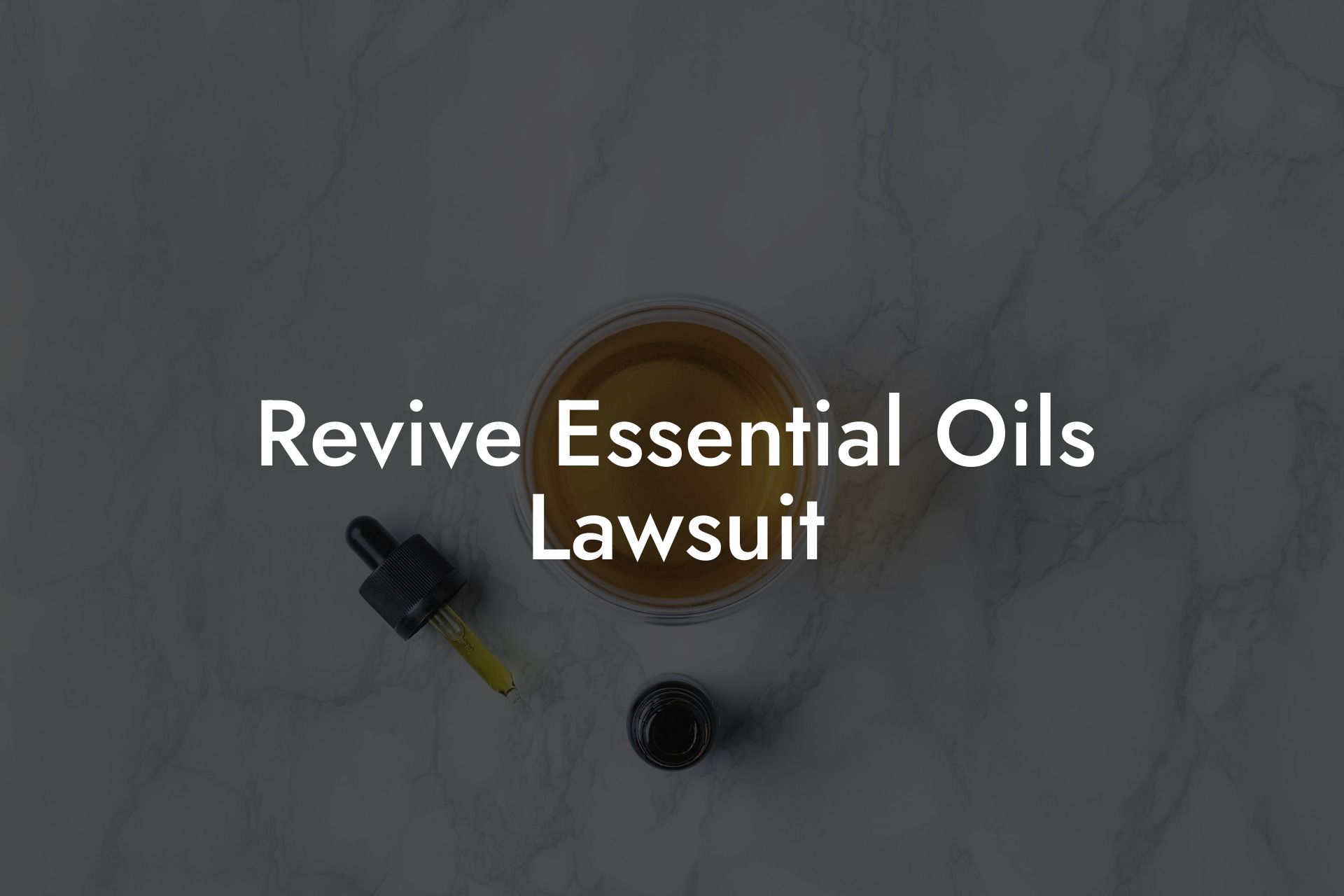The world of essential oils is ever-growing, but sometimes, controversy and legal issues arise, impacting the industry and its consumers. In recent years, the Revive Essential Oils lawsuit emerged as a notable case that raised concerns about business practices and product quality. In this article, we will delve into the details of the lawsuit filed against Revive Essential Oils, providing an unbiased analysis of the events, the implications for essential oil users, and the lessons to be learned.
Table of Contents
What is Revive Essential Oils?
Revive Essential Oils is a relatively new essential oil company founded in 2018. The brand markets its products as 100% pure, therapeutic-grade, high-quality essential oils at affordable prices. They also claim that their oils are sourced from trusted suppliers and undergo third-party testing to ensure consistency and purity.
The Lawsuit Against Revive Essential Oils
In August 2020, Young Living, a well-known essential oil company, filed a lawsuit against Revive Essential Oils in a United States District Court. The lawsuit alleged that Revive Essential Oils engaged in:
- False advertising
- Unfair competition
- Trademark infringement
- Trade dress infringement
Young Living claims that Revive Essential Oils copied their formulations and packaging designs, misled consumers about product quality and safety, and tried to benefit from Young Living’s brand reputation. The lawsuit demands monetary damages, an injunction to stop Revive Essential Oils from continuing these practices, and the destruction of any products or materials that infringe upon Young Living’s intellectual property rights.
Revive Essential Oils’ Response
Revive Essential Oils has publicly refuted the accusations made by Young Living, stating that their products are neither copies nor inferior to Young Living’s offerings. They maintain that their aim is to provide consumers with affordable essential oils without compromising on quality. The company also stressed that they are committed to transparency and that all their testing reports are publicly available on their website.
Settlement and Conclusion of the Lawsuit
In December 2020, both parties agreed to a settlement, with the details remaining confidential. As a result, Revive Essential Oils made some post-lawsuit changes such as:
- Adjusting product names to differentiate them from Young Living’s offerings
- Modifying their website content and marketing materials
Despite these changes, Revive Essential Oils continues to operate and grow its customer base.
Lessons Learned and Moving Forward
The Revive Essential Oils lawsuit piqued the interest of many consumers who rely on these products to support their well-being, and it ultimately highlights the importance of transparency, accurate advertising, and respecting intellectual property in the essential oils industry.
Revive Essential Oils Lawsuit Example:
For end consumers, a critical takeaway from the Revive Essential Oils lawsuit is the significance of due diligence when choosing a brand for their essential oil needs. Some factors to consider include:
- Quality and purity of essential oils
- Transparent sourcing practices and third-party testing
- Avoiding companies with a history of legal issues or questionable business practices
Our brand, Oshu Oils, is deeply committed to providing meticulously crafted, high-quality essential oils that can genuinely benefit our customers’ lives. Our knowledgeable team of aromacologists, comprehensive essential oil guides, and commitment to customer satisfaction set us apart in the industry.
In conclusion, while the Revive Essential Oils lawsuit has brought multiple concerns to light, it has also demonstrated the importance of transparency and integrity in the essential oils industry. If you found this article insightful, please feel free to share it with others, explore more essential oil guides on Oshu Oils, and browse our range of exceptional essential oils that you can trust and benefit from. Your well-being is our top priority!





















